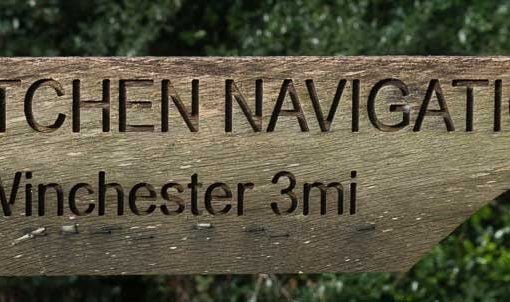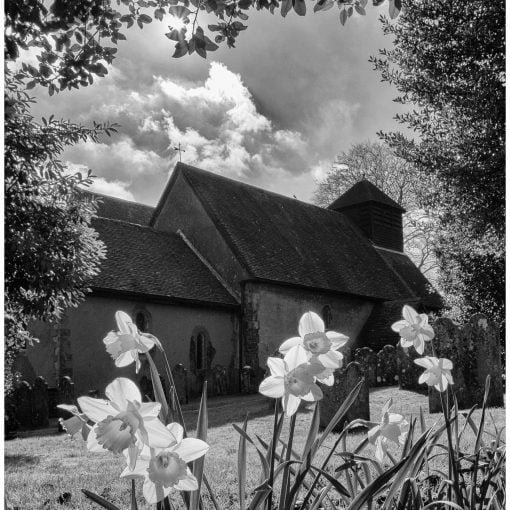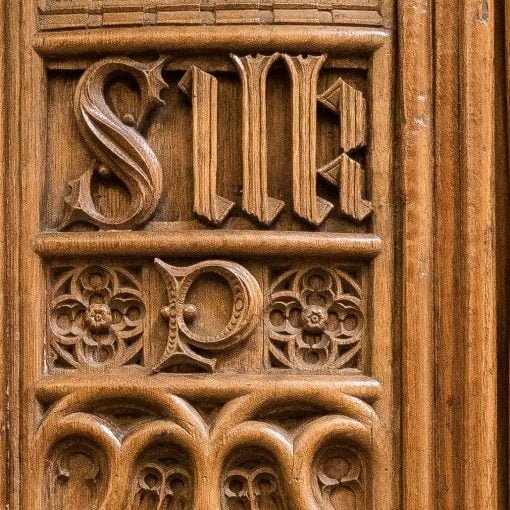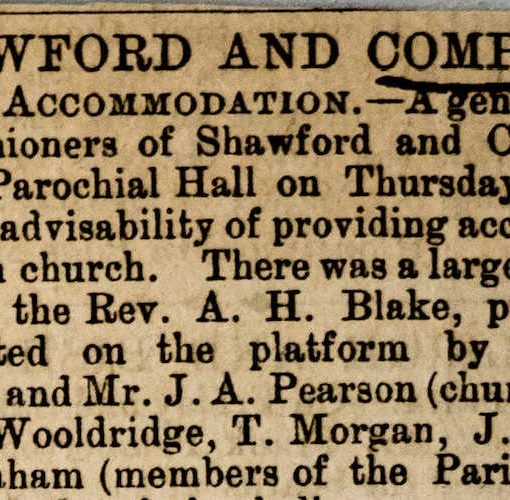Sarah Williams, a woman to be praised above all others
This script is based on the correspondence exchanged between Sarah Williams and her husband Philip Williams, Rector of Compton church from 1781 to 1830, as published in “The Speaker’s Chaplain and The Master’s Daughter” by Barry Shurlock (see leaflet in church for details).
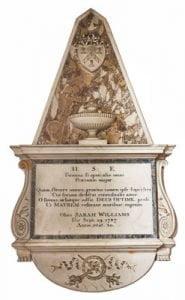
Introduction: If you have read the small notice at the back of the church, you will recognise this tribute. Translated from the Latin on the memorial stone above, it reads:
“Here lies buried a woman who far surpassed all common praise.”
Sarah Williams, who died on the 19th of September 1789
Commentator: Praise indeed! In a world run by men, a mother of four children, she obviously made her mark here in Compton.
Local voice: My name is Hannah and I was a farmer’s wife living in Compton. The rector’s wife was often busy running the affairs of the parish!
Commentator: In the eighteenth century! I thought women were like children – “Seen and not heard!”
Local voice: Sarah wasn’t. In fact if it had not been for her, we would have often sat here in that church without a clergyman!
Narrator: So who was this woman?
Sarah Williams: I was the daughter of the second master at Winchester College and in March 1779, I married Philip Williams who two years later became rector at your church. Our church!
Narrator: He was already, bursar at Winchester College, vicar of a parish in Lincolnshire, and soon to be chaplain to the speaker of the House of Commons which meant he worked and lived in London. Not Compton.
Commentator: Umh? Greedy/ Dishonest?
Narrator: Pluralism is the posh word for it. They were all at it!
Husband: My name is Philip Williams. I had to go away. I would send my wife light hearted letters about the continual round of parliament, parties and plays.
Commentator: How nice for her!
Philip Williams: I had to go away. I had to live the London life and mix with important people. I needed promotion to support my family.
Narrator: This left the parish without a rector and to make matters worse, Compton did not have a curate.
Commentator: I think we are getting the picture: Sarah had to cover for her husband!
Local voice: Living in Compton, we all knew it was Mistress Williams who kept the church going. It was she who arranged with local clergy men to take services. Every Sunday she came to Compton herself to see that all went well.
Commentator: A surrogate Rector!:
A Messenger: A letter.
Sarah Williams: My Dear Sir, I am charged with a petition to you from Shawford and Compton to have a casement opened in the church, but I could say nothing ‘till I had your orders.
Local voice: The Blacksmith was ordered to make two casements in the two chancel windows. The Rector’s wife did not even have a churchwarden to deal with the church buildings.
Narrator: And Sarah did not hesitate to stand up for Compton. July 29th was appointed as the day for a Thanksgiving service to mark the end of the war with America, Holland, Spain and France.
Commentator: The Hampshire Chronicle made much of this announcing a service at the cathedral.
Sarah Williams: I wrote to my husband to say I had asked Mr Heathcote to celebrate this service in Compton.
Philip Williams: And I wrote back to say:
“I shall not wish Heathcote to take any notice of the Thanksgiving, in so small a place of n’importe as Compton.”
Narrator: To which she replied.
Messenger: A letter!
Sarah Williams :My Dear Sir…
Reader: I have written to Mr Heathcote about the thanksgiving, and if he cannot do the duty, I shall get it done, if I make a sermon myself. It is no excuse to the Comptonites that you are busy! So in spite of you there shall be a service.
Philip Williams: Oh but I did tell my wife how much I would have rather been with her:
Messenger: Letter!
Reader: I would give something to exchange at this instant the beautiful prospect of the Thames , for the Itchin and Catharine Hill.
Local voice: Mistress Williams wrote to the rector weekly. She was not someone to hide her feelings!
Sarah: My Dear Sir, I am not at all relieved by your letter,- as you may guess.
Reader and it went on: and if I knew of any wretched hovel where I could hide myself – with my children- in the country till you come home – I should be glad to do it. Merely to avoid being asked – by every person I meet – when you can come home!
Narrator: Her wish was finally granted in 1787.
Local voice: Mistress Williams was filled with great happiness.
Maid: It was summer and the master came home.
Local voice: But it did not last.
Conclusion: Childbirth took the lives of numerous women and on September 19th it took Sarah’s. Her husband wrote:
Bemoaned by all, yet most by one remaining, To whose lot fell the love of such a wife.
Great God, the orphans in thy care sustaining,
Still may her grace and worth – through them- find LIFE.
A woman who far surpassed all common praise.
Sheila Forbes
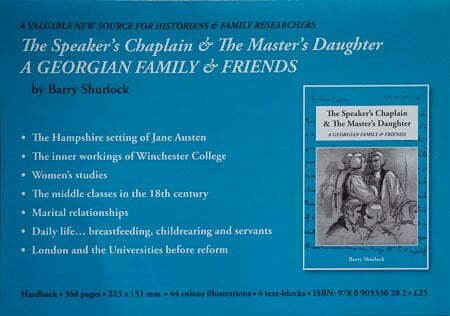
See also the Electronic Enlightenment Philip “Polyby” Williams Project
The script was published in the April 2016 edition of the Parish Magazine

